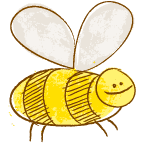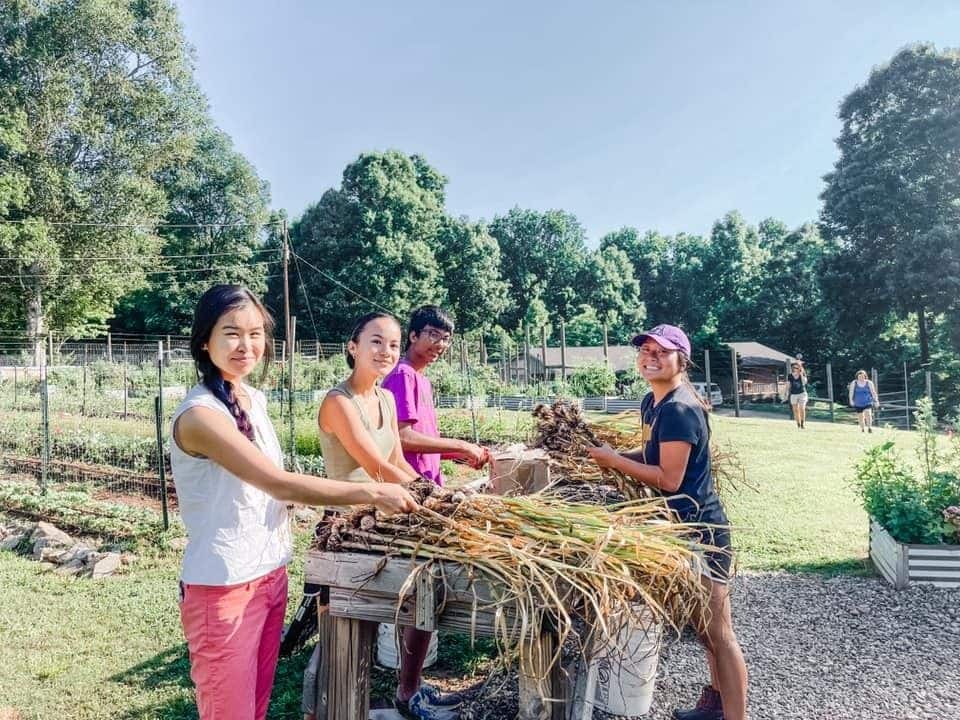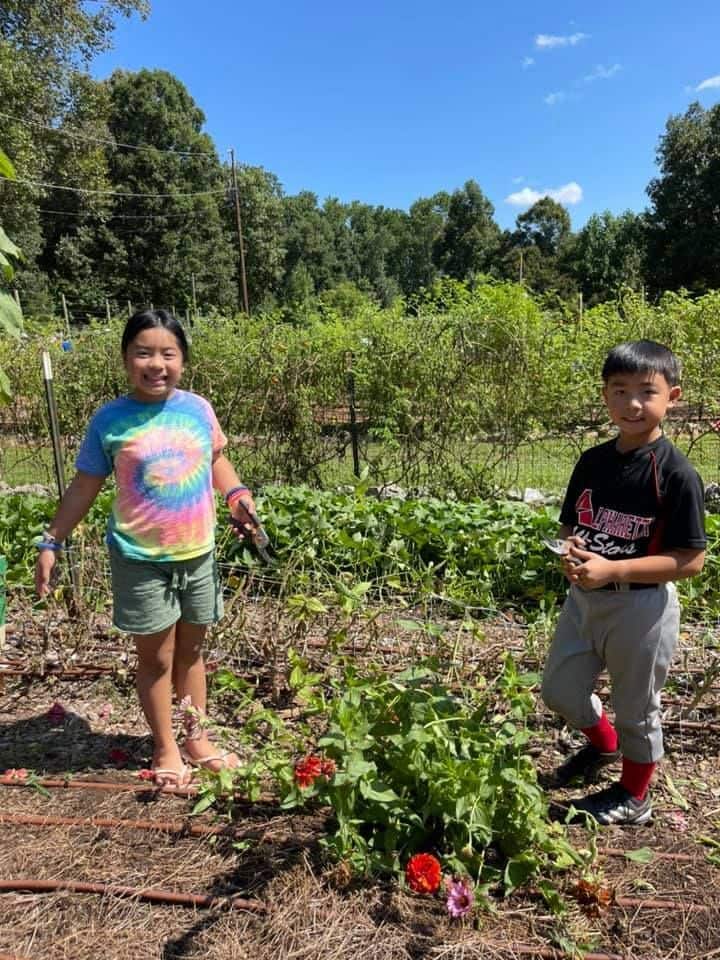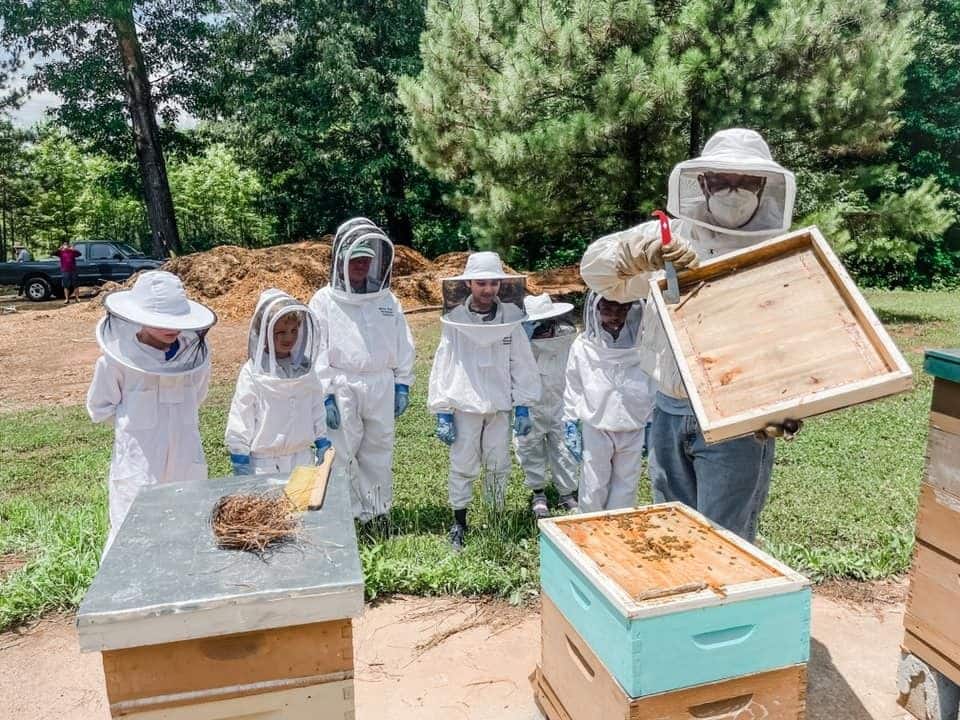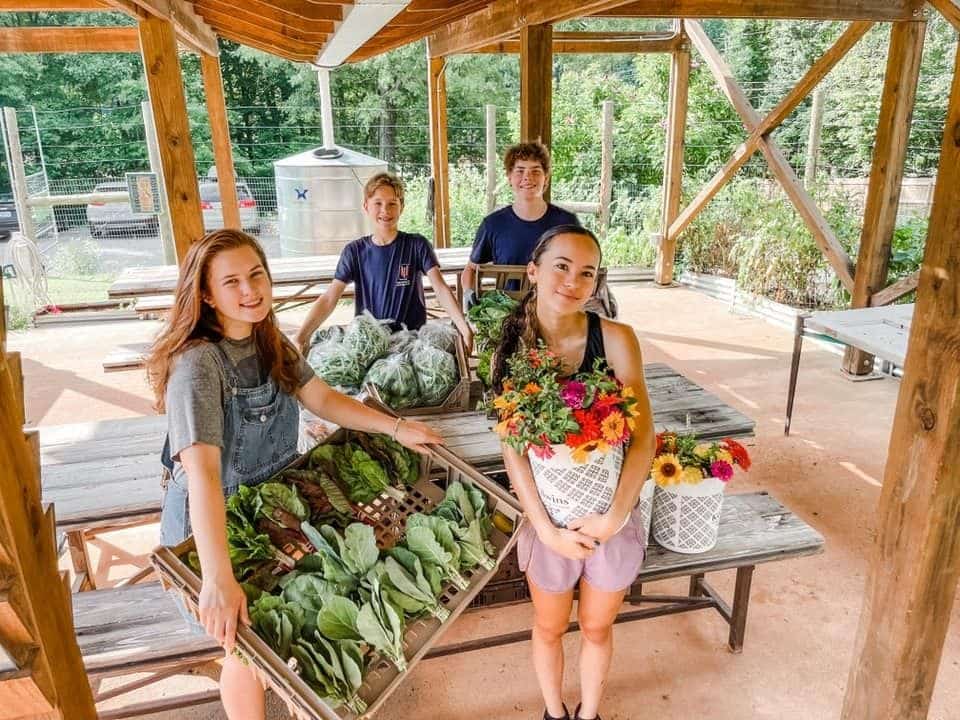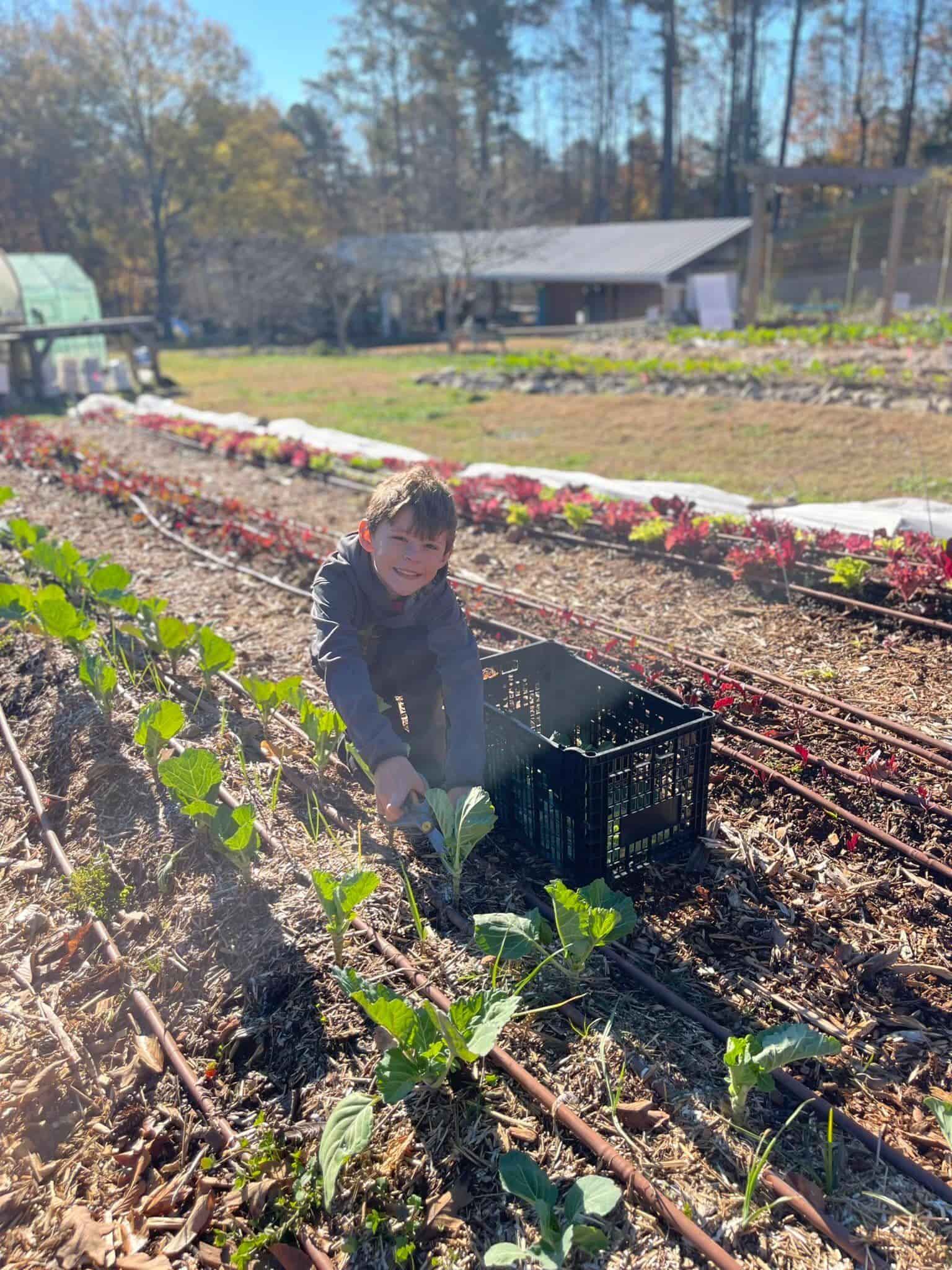The farm’s Grow-a-Row Program was launched to meet the sharp increase in demand on the local food bank partner during the early stages of the Pandemic. Old Rucker Farm added seven 80-foot long rows, which added a 50% increase to their production field. Nearly 70 community members signed up to adopt a row, and 100% of the harvest is given to the food bank.
The farm has also created an Annual Cut Flower Membership, which is designed to help members grow a thriving cut flower garden at home or in a plot at the farm.
Donation. The city of Alpharetta does not sell the produce or honey grown at Old Rucker Farm. During the school year, the produce from the educational garden goes to the ag-business high school students who grow, harvest and then sell the produce (and honey) as part of their class. The funds go to a college scholarship account. Then, during the summer months, all the produce is donated to a local food pantry.
Looking Ahead
This is just the beginning of Alpharetta’s Community Agriculture Program. The program has committed to evolving over time, striving to best serve and meet the needs of the entire community. As the city continues to develop partnerships and programs based on residents' feedback, so too will the farm.
Amanda and the team at the farm are exploring a second greenhouse, expanding the orchard, as well as developing summer youth programs, a local grower incubator program, and opportunities for adaptive learners.
